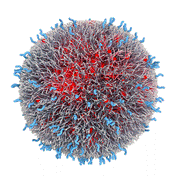Center, Biotechnology

Nebraska Center for Biotechnology: Faculty and Staff Publications
Document Type
Article
Date of this Version
2016
Citation
eLife 2016;5:e13292
Abstract
Plants react to seasonal change in day length through altering physiology and development. Factors that function to harmonize growth with photoperiod are poorly understood. Here we characterize a new protein that associates with both circadian clock and photoreceptor components, named PHOTOPERIODIC CONTROL OF HYPOCOTYL1 (PCH1). pch1 seedlings have overly elongated hypocotyls specifically under short days while constitutive expression of PCH1 shortens hypocotyls independent of day length. PCH1 peaks at dusk, binds phytochrome B (phyB) in a red light-dependent manner, and co-localizes with phyB into photobodies. PCH1 is necessary and sufficient to promote the biogenesis of large photobodies to maintain an active phyB pool after light exposure, potentiating red-light signaling and prolonging memory of prior illumination. Manipulating PCH1 alters PHYTOCHROME INTERACTING FACTOR 4 levels and regulates lightresponsive gene expression. Thus, PCH1 is a new factor that regulates photoperiod-responsive growth by integrating the clock with light perception pathways through modulating daily phyBsignaling.


Comments
Copyright Huang et al.
Open access
DOI: 10.7554/eLife.13292